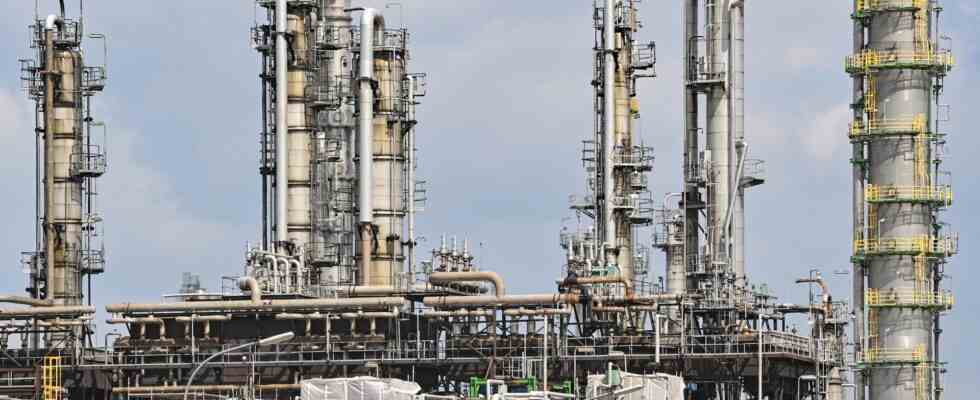Status: 04.05.2022 02:45 a.m
For weeks, the EU has been discussing whether an oil embargo against Russia could be managed. The EU Commission is now giving a clear answer. It is now up to the member states.
Companies from Germany and the other EU countries should no longer be allowed to import Russian oil in the future. This is what the EU Commission and the European External Action Service propose for a new package of sanctions against Russia, as reported by several media outlets.
In order to give the countries time for the changeover, there should be transitional periods. Specifically, according to the information, it is planned that after a phase-out phase of six months an import ban for crude oil will apply and after a phase-out phase of eight months an import ban for oil products will also apply. It should also play a role whether deliveries are made by pipeline or by ship.
According to the information, far-reaching exemptions are only planned for Hungary and Slovakia. These two EU countries are currently still getting a large part of their oil needs from Russia and, due to a lack of access to the sea, do not see themselves in a position to develop alternative sources of supply as quickly as other countries.
Janis Kluge, Russia expert at the Stiftung Wissenschaft und Politik, on the impact of the sanctions imposed on Russia
daily topics 10:15 p.m., May 3, 2022
New sanctions against companies and individuals
In addition to the oil embargo, the proposal by the responsible EU institutions also includes new penalties against companies, according to dpa information. Among the latter are the largest Russian bank, Sberbank, as well as two other banks and TV stations that are deliberately spreading misinformation about the war against Ukraine. The banks should no longer be able to use the international financial communication system Swift.
Actors responsible for the Russian atrocities in Ukrainian cities such as Bucha and Mariupol are to be added to the EU list of people and organizations whose assets are to be frozen.
In order for the planned sanctions to come into force, the approval of the governments of all 27 EU countries is now required. Their permanent representatives in Brussels want to start consultations this Wednesday. If there are no more major objections from the capitals, the embargo could then be decided in the coming days.
Habeck expects “price jumps”
EU citizens could incur significant additional costs, particularly as a result of the oil embargo. Federal Minister of Economics Robert Habeck (Greens) expects high “price jumps”. One of the reasons is that Russian oil must be replaced by probably more expensive alternatives from other countries. In addition, the conversion of refineries and delivery routes means effort and costs. But hardly anyone dares to predict when and to what extent refueling or heating will become more expensive.
The new package of sanctions is the sixth that the EU Commission and the European External Action Service (EEAS) are launching. The economic punitive measures are primarily intended to help deprive Russia of the financial resources to continue the war of aggression against Ukraine.

